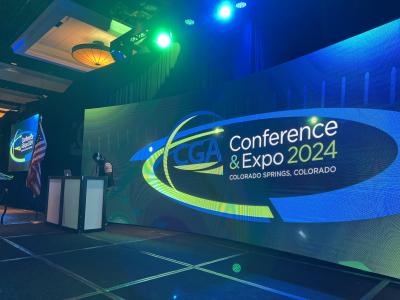Amid controversy over further tax cuts when the country is entrenched in a very costly war and in heavy and increasing debt, the President signed the Tax Increase Prevention and Reconciliation Act of 2005 [H.R. 4297: “TIPRA”] into law May 17.
There are no major new initiatives, and what was dropped during conference generated nearly as much attention as what was retained — in particular, certain expiring tax breaks, including the R&D credit, the sales tax personal deduction, among others. Still, TIPRA contains several core provisions of general importance to businesses and individuals.
Capital Gains and Dividends
The reduced rates for most capital gains, enacted into law in 2003 and due to expire at the end of 2008, have been extended for two years until the end of 2010. Dividends of domestic corporations will continue to be taxed at capital gains rates (5 percent and 15 percent for regular and AMT purposes) during this extended period, with the 5 percent rate phased out as of the end of 2007.
Gain on collectibles and from unrecaptured real estate depreciation continues to be subject to special rates (28 percent and 25 percent, respectively).
Alternative Minimum Tax
The 2003 tax act increased the exemption amounts for computing AMT for years beginning in 2004 and 2005 from $45,000 to $58,000 for married couples filing joint, $33,750 to $40,250 for single filers, and $22,500 to $29,000 for married individuals filing separate; the exemption amount for estates and trusts ($22,500) was not increased. TIPRA extends and increases the exemption amounts through 2006, as follows: married filing joint: $62,550, married separate: $31,275, unmarried: $42,500.
Roth IRAs
A deduction is allowed for contributions to an IRA, subject to phase-out at certain income levels; withdrawals are taxable. The alternative is a Roth IRA, which allows no deduction for contributions but no tax on withdrawals.
Regular IRAs can be converted to Roths, but only at the cost of a current tax (but no 10 percent early withdrawal penalty) on amounts converted. Under prior law, taxpayers with adjusted gross income exceeding $100,000 could not make an IRA rollover contribution to a Roth IRA.
TIPRA eliminates this restriction for tax years after 2009. In addition, half of rollover withdrawals made in 2010 will be subject to tax in each of the next two years, unless the taxpayer elects full taxation in 2010. Whether to convert traditional to Roth IRAs remains complex and subject to individual circumstances, though many advisers counsel conversion on the theory that rates can only go up after 2010, if not before.
Small Business Expensing of Equipment Purchases
For years, the Internal Revenue Code has provided expensing of up to $25,000 for purchases of equipment and other depreciable personal property used in a trade or business. This amount was reduced for purchases in excess of $200,000.
In 2003, these amounts were bumped to $100,000 and $400,000, respectively, for purchases in taxable years beginning before 2008. TIPRA extends the enhanced deduction for another two years, through 2009. The $100,000 and $400,000 amounts are indexed for inflation (in 2006, $108,000 and $430,000, respectively).
Domestic Production Deduction
The 2004 tax act introduced a deduction for “qualified production activities” (QPA) , limited to 50 percent of wages paid during a year in connection with the QPA. As originally drafted, the wage limitation was not clearly limited to wages paid for QPA only.
TIPRA eliminates this ambiguity. TIPRA also eliminates a special rule that applied to partners and shareholders of S corporations, which limited the QPA deduction to not more than twice the QPA income (QPAI) allocated to the owner.
The new rule limits the deduction for a pass-through owner to 50 percent of QPA-related wages allocated to the owner, even if more than twice QPAI allocated to the owner. Rev. Proc. 2006-22 (May 25, 2005) provides detailed guidance on determining “W-2 wages” for purposes of computing the QPA deduction, which, for 2006, is limited to 3 percent of QPAI, increasing to 6 percent in 2007 through 2009, and 9 percent thereafter. Simple to state in general, the computation is complex in practice.
Kiddie Tax
Unearned income of minor children is taxed at the parents’ marginal rate. TIPRA changes the cutoff age for application of this provision from under 14 years of age to under 18 years of age, and adds an exception for married children filing jointly. A bill has already been introduced to repeal this change.
Other Provisions
TIPRA also includes provisions addressing reporting by payers of tax-exempt interest; estimated taxes of certain large corporations; rules regarding corporate spin-offs; FIRPTA gains of mutual funds; new rules for determining the foreign-earned income exclusion of citizens and residents temporarily employed abroad; treatment of certain Superfund settlements; mechanics of offers in compromise; penalty taxes on exempt organizations serving as accommodation parties in tax shelters; certain subpart F income of controlled foreign corporations.
This summary is not intended to be, and should not be taken as, tax advice. The summary provides only a general overview of selected provisions, and does not include all qualifications and exceptions. Effective dates are not the same for all provisions summarized. As always, the application of summarized provisions to a particular situation will depend on the details of that situation.
For more information, visit www.stephanoassociates.com.
(Michael DeLaurentis is a consultant of Stephano & Associates LLC. He can be reached at [email protected].)
Today's top stories















